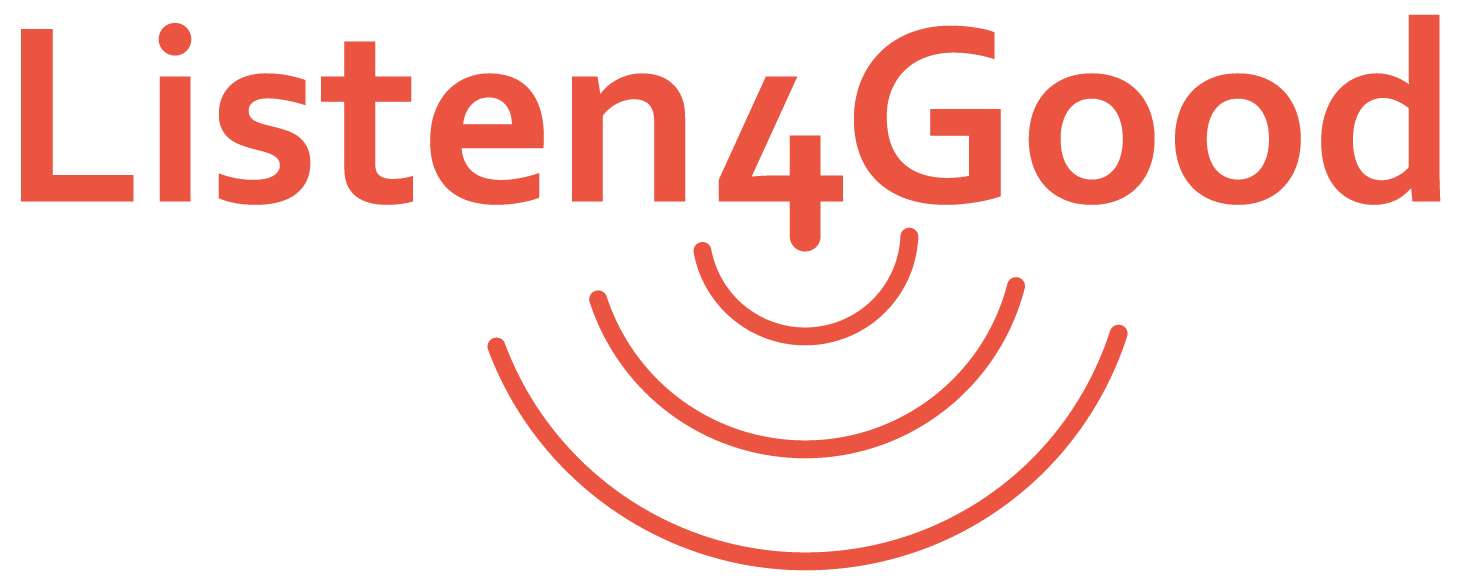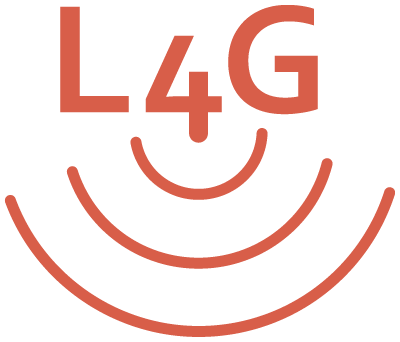- Case Studies
From Client Satisfaction to Fundraising — How Legal Aid Organizations Use Listening
October 2, 2024
- Acting on Feedback
- Collecting Feedback
- Community Voice
- Data and Impact
- Legal Aid
- Surveying

This case study explores how two legal aid organizations, Open Door Legal (ODL) and Community Legal Services (CLS), partnered with Listen4Good (L4G) to enhance their impact measurement, client satisfaction, and fundraising efforts. Both organizations serve low-income individuals in need of legal services and face unique challenges in measuring the effectiveness of their work with clients.
In working with Listen4Good, Open Door Legal and Community Legal Services developed high-quality feedback loops that not only improved service delivery but also unlocked new opportunities for fundraising and growth.
Listen4Good helps highlight the impact of legal aid services
Legal aid organizations provide critical safety net services in the form of free legal advice and counsel for low-income families and individuals across the country. Services provided can be wide ranging in focus, covering everything from rental/ housing disputes, immigration support, family law, domestic abuse, employment discrimination and equitable access to services. However, many legal aid organizations face ongoing challenges in demonstrating their impact–a crucial input for securing funding from public and philanthropic sources.
The nature of legal aid work, which often involves brief interactions and one-time assistance, makes measuring long-term outcomes particularly challenging. The metrics available to legal aid organizations tend to be focused on the smaller subset of cases that eventually proceed to full legal representation, leaving out the broad advice work which constitutes most of legal aid’s workflow.
To overcome this, legal aid providers are increasingly seeking adaptive ways to measure their effectiveness and demonstrate their value to funders and oversight bodies. Client satisfaction is also becoming an increasingly important metric, as regulators, funders and the field place greater emphasis on holistic service delivery.
For aid providers, like ODL and CLS, and funders alike, this creates a challenge: how to demonstrate and assess impact when it’s diffuse and harder to quantify. Listen4Good offers a solution by delivering client insights to support service delivery and fundraising.
With only a small percentage of our funding coming from industry and government sources, it’s even more critical that we have compelling ways to showcase our impact, and Listen4Good offers that.”
open door legal
Open Door Legal (ODL)
Open Door Legal (ODL) is a San Francisco-based nonprofit dedicated to providing universal access to legal assistance in a scalable, sustainable, and cost-effective way to address poverty. ODL has served over 10,000 people across practice areas, including housing, family, and immigration law.
Prior to partnering with Listen4Good, Open Door Legal used quantitative metrics, such as case outcomes, awards acquired, and case success rates to assess its organizational impact, but ODL’s leadership knew that these metrics were not telling ODL’s whole story. In joining Listen4Good, ODL was excited to access qualitative data that provided a deeper understanding of the personal impact its legal services have on clients, particularly broader poverty-related outcomes, as well as information about the quality of its service delivery that it could use to drive continuous improvement.
Open Door Legal uses Listen4Good’s supports to accomplish 74% response rate
To gather client feedback for the first time, ODL used an automated system that sent email and text surveys at multiple points in the client’s journey. ODL’s L4G surveys explored key themes including accessibility of services, the degree to which clients felt their attorneys kept them informed, and gathering input about broader client needs.
This automated outreach system was supplemented by a summer intern who conducted follow-up calls with select clients. Using a mixed method approach, ODL was able to achieve an impressive 74% response rate, hearing from hundreds of its clients.
After attending a Listen4Good conference, ODL also introduced small incentives, further boosting response rates.
Implementation of the feedback survey has allowed us to create a uniform way to collect, analyze, and reflect on feedback data from our clients. This was the first time our organization collected feedback from our clients…The data has not only helped us improve our program delivery model, but it has allowed us to tell the story of our work in a more impactful way.”
open door legal
Data drives organizational change
ODL integrated the L4G feedback loop into regular operations, as feedback results were reviewed regularly by leadership, and summarized at the organization’s annual meetings to identify trends and areas for improvement. ODL’s summer meetings offer clients, staff, board members and supporters an opportunity to review and plan the organization’s work for the upcoming year.
One of the most surprising findings for ODL was the consistency of the feedback received across multiple cycles. Two themes that came out of the feedback were the need for consistent communications from ODL attorneys and the expansion of services to more communities.
ODL used this input to:
- Improve attorney-client communication so that clients were more informed about their cases
- Expand its service areas
- Hire more diverse staff
Legal Aid as a Poverty Reduction Strategy
One of the most enduring impacts of feedback, however, was its effect on how ODL was able to tell its story and demonstrate its impact to funders. Open Door Legal leveraged its Listen4Good feedback data to make a compelling case to funders, positioning legal aid as a critical poverty reduction strategy. This innovative approach helped ODL break into a new tier of institutional funding, particularly from foundations typically focused on poverty alleviation rather than traditional legal aid. By demonstrating that legal outcomes directly impact poverty outcomes, ODL was able to shift the narrative and secure funding typically reserved for social services. This strategy has significantly enhanced the organization’s transparency with grantors, enabling ODL to present real client feedback that highlighted both successes and areas for growth in a credible, data-driven manner.
Community Legal Services (CLS)
Community Legal Services (CLS) is a full service civil legal aid law firm that promotes equal access to justice. CLS’s team of attorneys and advocates provide legal aid at no cost for nearly 10,000 people in Central Florida each year.
When CLS joined Listen4Good, the organization had recently launched its all attorney staffed Helpline, a telephone-based service providing brief legal advice/services and referrals. Prior to the program, CLS had done little to collect client feedback when services were only provided at the Helpline but utilized paper surveys for clients who received services through another substantive law unit. CLS wanted to gather data to support the growth and scale of the new Helpline.
“The overall experience of participating in Listen4Good has been transformational for CLS. We were doing very little to solicit our clients’ feedback before beginning this journey. [Working with L4G made us] aware of our shortcomings and helped us craft a feedback process that works for us with a repeatable format.”
CLS accomplishes impressive response rate surveying Helpline callers
In order to gather immediate feedback from clients right after their Helpline call, CLS integrated a survey function directly into its phone system via an Interactive Voice Response (IVR) system. In addition to leveraging the IVR system, CLS also invested in 45 tablet computers to facilitate real-time feedback collection at its clinics and mobile Helpline events. The tablets were preloaded with customized surveys, allowing clients, clinic attendees, volunteer attorneys and mobile Helpline participants to share their experiences on the spot.
This multi-channel approach enabled CLS to capture a broad range of feedback across various touchpoints, ensuring a comprehensive understanding of client satisfaction and areas for improvement.
CLS sent 2,000 surveys through the IVR system to Helpline clients and achieved a strong 20% response rate. This response rate is particularly impressive given the nature of the service—a one-time interaction that doesn’t easily facilitate follow-up.
CLS survey responses led to:
- Reduction in call abandonment and increase in impact
- Increase in staff morale
- Expansion of services
- New funding opportunities
Reduction in call abandonment and increase in impact
CLS used Listen4Good’s feedback program to significantly improve its phone-based services. In its first feedback loop, CLS focused on clients’ reactions to the newly implemented phone system. The intelligence gathered from client responses helped CLS understand key areas for improvement, including enhancing the overall user experience.
In its second year, the organization created a feedback loop to learn about the experiences of callers who didn’t reach a representative, specifically those who were knocked out of the queue or didn’t understand their position in line. Feedback from clients led CLS to add two new facets to the HelpLine, online intake and a chatbot service, expanding access beyond telephonic intake.
Increase in staff morale
CLS’s feedback work also had a powerful, extended impact on CLS’s internal team. Before working with Listen4Good, feedback collection was limited to mailed surveys that didn’t offer many insights as they were rarely returned even with a self-addressed stamped envelope. These surveys were limited to clients who received services beyond brief advice. Having a structured feedback loop provided the Helpline team with more continuous and balanced input. By sharing all feedback with attorneys, positive and negative, the team was able to adjust in real-time to better meet client needs. This fostered a more positive work environment and improved staff morale, as attorneys benefited from the valuable feedback that not only guided service delivery improvements but also enhanced their confidence through positive client recognition.
Expanding data collection
CLS’s Listen4Good project also positioned the organization to gather broader organization-wide feedback and impact data. For example, CLS rolled out feedback loops across its Substantive Law Units (SLUs), and expanded its use of electronic surveys so that it could hear more consistently from clients at a higher volume than ever before. As a result, the organization now hears from hundreds of clients across the areas of practice each year.
New Funding Opportunities
The implementation of feedback loops at CLS impacted not only service delivery but also funder engagement. CLS shared client satisfaction findings with funding organizations, who expressed excitement about the progress and the positive impact on its clients. CLS’s ability to demonstrate concrete improvements, driven by client feedback, has strengthened these relationships and showcased CLS’s commitment to accountability and continuous improvement.

